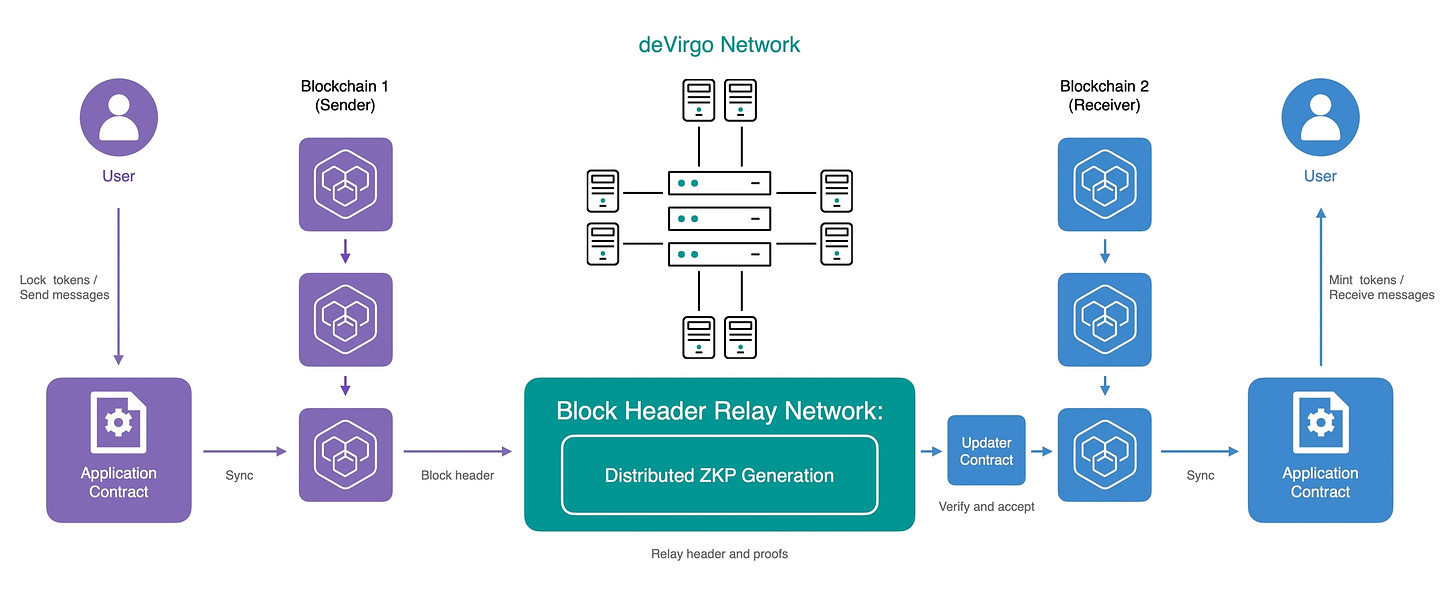Airdrop controversy
Recently, zkBridge developer Polyhedra Network’sAirdrop claimThe event generated a lot of buzz, mainly because most participants received fewer tokens than expected. In addition, as a cross-chain project focusing on interoperability, Polyhedra Network applied for this airdrop on the Ethereum mainnet, resulting in users having to pay high gas fees, further exacerbating the spread of dissatisfaction in the community. In the face of community controversy, Polyhedra Network subsequently announced remedial measures and plans toroll outZK token airdrop worth $15 million, but specific details have not yet been announced.
Amid the controversy, how can Polyhedra Network regain user trust?
Polyhedra Network’s technical capabilities
Polyhedra Network is a company building Web3 interoperability, scalability and privacy infrastructure through zero-knowledge proof (ZKP) technology. Drawing on its expertise in cryptography, the team builtVirgo、Virgo++、Orion、Libra、Gemini、Marlin、Pianist7 different zero-knowledge proof systems and published papers introducing them one by one.
Many friends who like on-chain interaction should have experienced the zkBridge currently built to achieve cross-chain interoperability. zkBridge utilizes zero-knowledge proofs to verify the validity of transactions between two blockchains. Compared with traditional cross-chain bridges, the advantages of zk technology are self-evident. There is no need to completely copy all data on each chain, only proof of transmission is required. The lightweight communication method improves the efficiency of cross-chain communication and eliminates external trust assumptions. In addition, unlike other zk cross-chain bridges, zkBridge can generate proofs faster, thanks to their zk-SNARK proof generation system deVirgo. deVirgo uses parallel computing to distribute the proof generation process across multiple machines, thereby achieving a proof generation time of less than 8 s, which is less than Ethereum’s 12 s block generation time. This avoids the need for proof generation due to the speed of the proof. Issues causing transaction delays.
In addition to deVirgo, which accelerates proof generation, zkBridges proof system also involves Libra and Virgo. Libra enables nodes participating in cross-chain communication to prove validity without revealing private information, providing the basis for zkBridges secure communication. Virgos fast proof time, compact proof size, and low verification complexity make cross-chain communication more efficient, supporting zkBridges scalability and performance.
In order to improve the performance of zkBridge, Polyhedra Network has also developed another proof system, paraPlonk, to accelerate the ZKP system based on Plonk (a zero-knowledge proof system) and minimize node communication overhead.
In addition to cross-chain tokens, zkBridge can also implement cross-chain NFTs and messages. And with the continued popularity of the Bitcoin ecosystem, zkBridge is ready to be compatible with the Bitcoin ecosystem and achieve interoperability and data transmission between Bitcoin and other blockchain networks.
In addition to zkBridge, Polyhedra Network has also developed zkLightClient, a lightweight client technology built on the LayerZero protocol for cross-chain communication. It uses ZKP technology to verify the state transitions that occur on the source chain and prove it to the receiving chain. Validity of state transitions without copying all data on the receive chain. This can greatly reduce the cost of on-chain verification and reduce latency. At present, zkLightClient has been fully integrated into the LayerZero protocol, and developers in the LayerZero ecosystem can use this technology to easily build cross-chain applications.
The above technologies promote the development of cross-chain communication. In the context of the current multi-chain era, achieving frictionless and imperceptible cross-chain interoperability is what users urgently need, and this is what Polyhedra Network is achieving.
Summarize
Polyhedra Network focuses on the ZK field in terms of technology, and solves some of the current blockchain problems in cross-chain, efficiency and privacy through solutions such as zkBridge and various certification systems. Although the airdrop caused some controversy, the projects subsequent response showed the teams positive attitude. Of course, as the specific details have not been made public yet, it remains to be seen whether it can once again gain recognition and support from the community.










